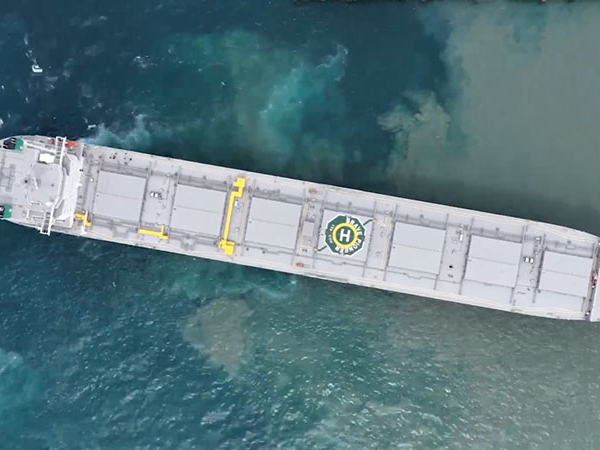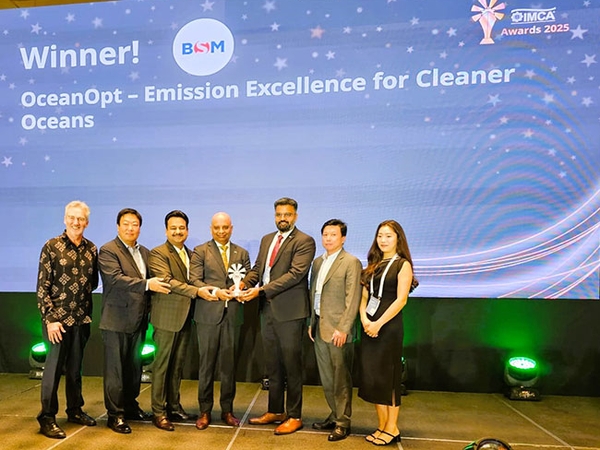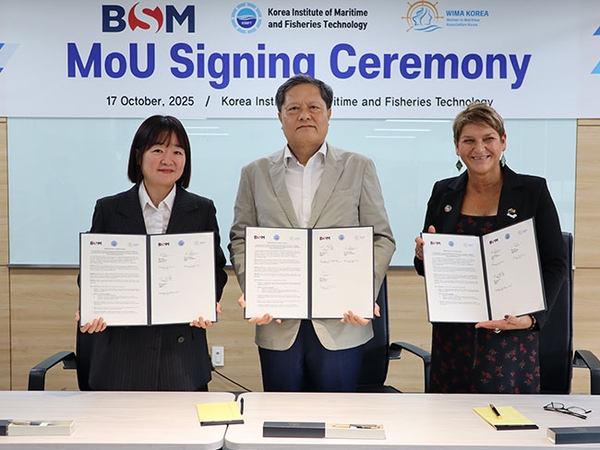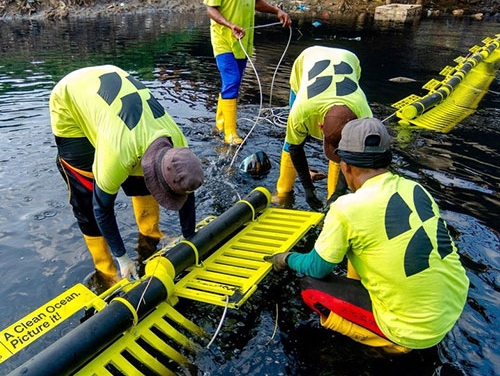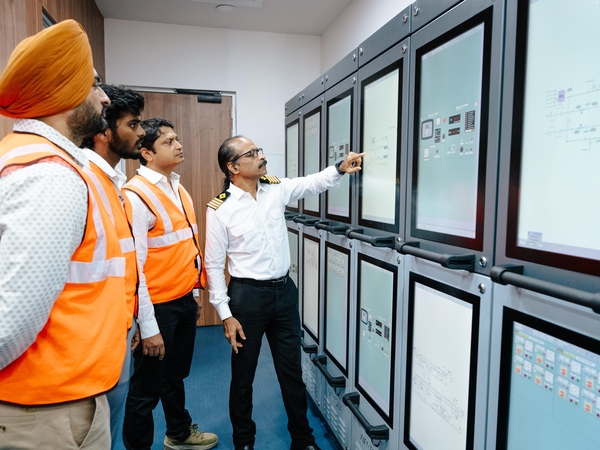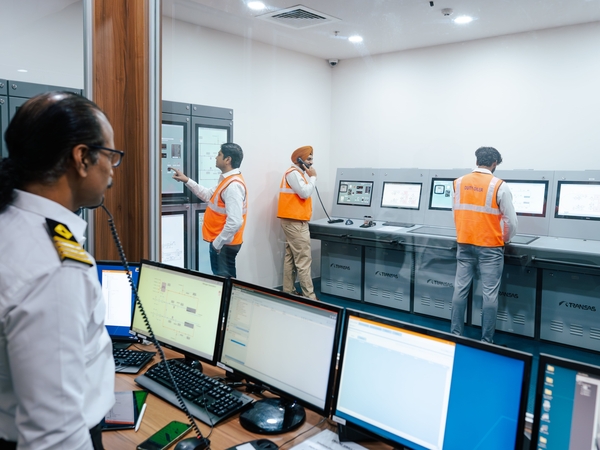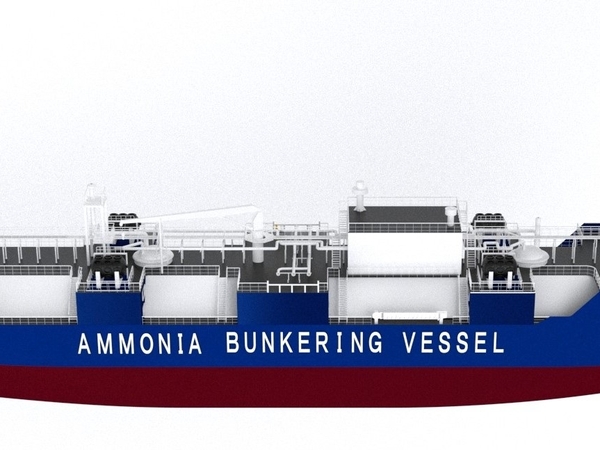
With a population of 120 million and covering almost two million square kilometres, Mexico is the most Spanish-speaking nation in the world and the 13th largest country by area.
Last year, Mexican ports handled 5.66 million teu of containers with circa 90% of Mexico’s Pacific coast traffic passing through either Lazaro Cardenas or Manzanillo, where a three-year project to build a tunnel affording freight trains 24-hour access which will more than double container volumes is nearing completion.
Major reforms radically transformed Mexico’s energy sector in August 2014, which were followed in March 2015 by comprehensive new regulations covering maritime activities. Bernhard Schulte Shipmanagement (BSM) has moved swiftly to support these initiatives and capitalise on the opportunities afforded by Mexico’s ambitious port renewal programmes.
“This affects not only ports but sustainable growth in cities, improving the way we do business, tackling environmental issues and legal compliance,” said Capt Ricardo Jimenez, Business Development/LPSQ Manager, who heads BSM’s Ship Management and Crew Service Centres in Mexico City and Ciudad del Carmen.
The recently opened Centres provide technical, commercial and crew management services for Mexican and foreign-flag vessels, consultancy to Mexican ship owners and operators and a range of integrated maritime solutions for the wider shipping industry.
The new Energy Reform Law offers business growth opportunities by increasing investment in oil production, refining, transportation, storage and distribution of hydrocarbons and provided a platform for BSM to establish a key partnership with the state-owned oil company, Petróleos Mexicanos (PEMEX).
The reform enabled PEMEX to acquire the legal framework required to make it a competitive and productive national oil company, freed from the previous constitutional constraints that inhibited working with international oil companies.
“PEMEX is a driving force with the power only oil companies have,” said Ricardo. “It has a large fleet of tankers that require services, which we are both willing and able to provide.”
BSM Mexico currently has six vessels under management. These include the flotels Reforma Pemex and her sistership Orgullo Petrolero which were built last year in Spain at the Barrera Shipyard in Vigo and Navantia Shipyard in El Ferrol respectively. Both are owned by Petroleos Mexicanos International (PMI) and chartered to PEMEX.
With accommodation for 715 workers, the 131 metre-long vessels have a service speed of 12 knots and DP-3 capability. Each flotel is fitted with a ‘walk-to-work’ motion compensated gangway system that enables the safe transfer of workers between the offshore platforms and accommodation vessel in the Campeche area. “Reforma Pemex is so sophisticated that it embraces the sort of technology seen in a star ship,” said Ricardo.
BSM Mexico also provides crew management services for three tugs owned by Mextug, while a management agreement was signed in May this year with the owner of a panama-size bulk carrier carrying steel in the cabotage trade between Lazaro Cardenas and Manzanillo. “This is a challenge for us and the type of customer we are seeking,” explained Ricardo.
Building on the relationships that have been established with these three major customers, Ricardo is certain that BSM Mexico will continue to strengthen and grow. “A mixture of the right customers, business partners and highly-trained employees are key to our business growth and establishing a strong reputation in the Mexican market.”
“At present, one of our top priorities is to grow our reputation in Mexico. To achieve this, we are very pleased to be able to draw on the support of current and former customers who support us in forming new relationships.”
With Mexico boosting its maritime industry, it is of vital importance to support the training and development of the country’s future leaders.
This is an area that BSM Mexico takes very seriously. “Some 300 cadets, all sponsored by BSM, are at maritime academies in Tampico, Veracruz and Matalan, not only with regards to the Mexican flag, but different flags and trades,” said Ricardo.
Ricardo is himself a good example of the success of BSM’s training and development programmes, having joined the Company in 1994 at the age of 21 as a Merchant Marine Academy graduate. “I started as a Junior Officer at the BSM Maritime Training Centre in Cyprus and worked my way to the rank of Captain,” he said. He was appointed to his current role in November 2015.
As to where he would like to see BSM Mexico in five years’ time, Ricardo is characteristically optimistic. “Our activities will increase in parallel with the development of the fleet and the Mexican flag, with opportunities arising from stable oil prices, economic reform and a solid legal framework which will help us to invest our resources,” he concluded.
